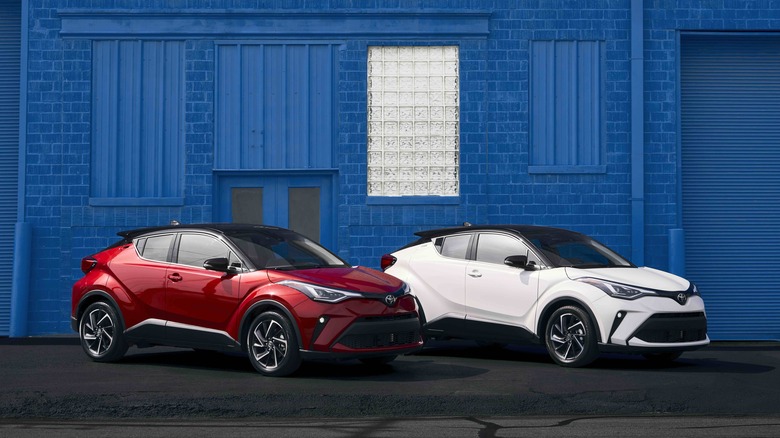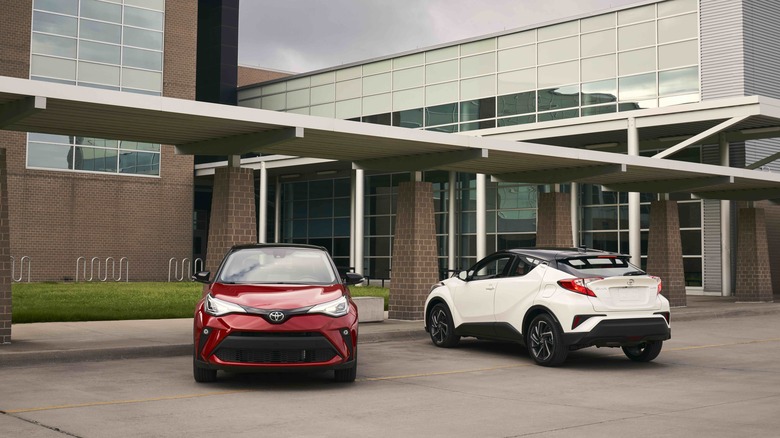Toyota C-HR Is Saying Sayonara To America After This Year
The Toyota C-HR was the quirky compact crossover that had relatively good gas mileage, but not much else. The car first debuted for the 2018 model year and was supposed to be a fun-stylish crossover for a good price. According to Toyota, "C-HR" stood for "Coupe-High Rider." It was made at a time when "crossover coupes" were all the rage. It featured an "avant-garde physique" per a press release from Toyota. In the original marketing materials, the automaker said, "Designers translated these traits into a physical form that's collectively matchless, sexy, muscular, and edgy. From the get-go, they strived to sculpt an urban-dwelling crossover that would effortlessly navigate tight city streets and stand out, with an agile, dynamic expressiveness." That's a lot of adjectives for a car that has less horsepower than the company's base-model Corolla.
In place of a fun lifestyle car, customers got a front-wheel drive only compact crossover that was less than exciting. The current C-HR is starts at $24,280 but is severely lacking in the features department, not to mention the fact it only comes equipped with a CVT and a 144-hp engine. But, according to Car and Driver, the C-HR is not long for this world.
Requiescat in pace, Toyota C-HR.
The C-HR will depart the U.S. at the end of the 2022 model year, Car and Driver reports. The car is shuffling off this mortal coil after just five short years of production. This may not come as a surprise as it was not a blockbuster for Toyota. In 2021 (the last full year sales results were available), the brand sold just 32,388 C-HRs in North America. Compare that to the 313,447 RAV4s sold, and you can see why Toyota isn't holding onto the C-HR very tightly (via Toyota).
Fortunately, for customers in the market for a similarly small crossover, there are numerous options from nearly every major manufacturer. With other automakers, Honda has the HR-V, Chevy has the (soon to be electrified) Equinox, and Ford has the Escape crossover, meaning that anyone looking for a small, tall car won't be left in the dark after the C-HR's passing. European customers will still be able to "enjoy" the C-HR for at least a few more years.
Maybe without the C-HR, Toyota will have some more time to invest in electic vehicles.

